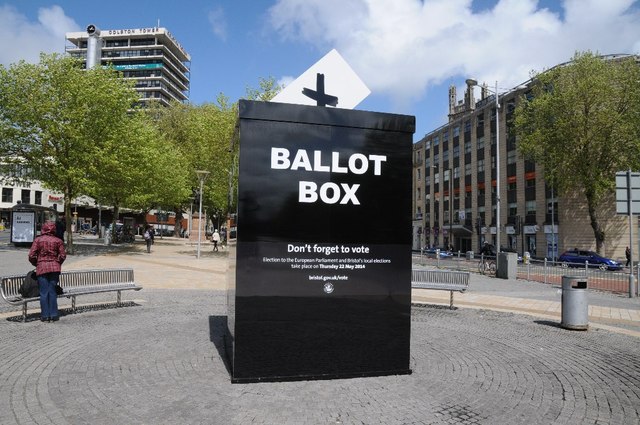ID checks at polling stations are being trialled in five English cities. Lester Holloway explains how the move will affect the most vulnerable.

As a resident of Watford, I will be required to bring a polling card or other ID with me to the polling station next week.
This weekend’s Observer reported concerns of the equalities watchdog that the move will disenfranchise black and minority ethnic communities. Others say that this is another attempt by the Tories to effectively gerrymander the electoral process in favour of them.
They are both probably right. Young people in general, and those that live in flats are also likely to be denied a vote at the polling station. In other words, Labour voters.
The evidence suggests that up to 800,000 people have already been disenfranchised by the move from household to individual voter registration.
Again, these were mostly likely to be young people, BAME communities, transient citizens and vulnerable people.
Undoubtedly the majority would have been Labour supporters. Electoral Commission say 3.5 million people in Britain do not have access to any form of photo ID.
The argument for ID checks is that it guards against voter fraud. Yet the current system appears to work perfectly well.
According to the Electoral Commission report, there was only one single solitary conviction of voter impersonation in last years’ general election – out of 32 million votes cast. ID checks are like taking a sledgehammer to crack a micro-organism.
If there is not more protest against the ID card check it will be rolled out nationally. And that spells bad news for democracy.
At the very time when the democratic process needs the legitimacy of a high turnout, Conservatives appear hell-bent on suppressing the vote. We cannot allow the party of the super-rich to turn the clock back to the days when only the privileged got to decide their elected representatives.
Most people are used to the current system. If reform is needed we should consider weekend and electronic voting rather than turning people away at the polling station because they haven’t got the right paperwork.
There are also practical reasons to oppose the ID checks. Assuming the mail delivery service works perfectly, polling cards can get lost in houses of multiple occupation, where they end up on the floor, and get chucked out with the pizza leaflets. Even where a polling card makes it through the right letterbox they are often scooped up with the junk mail.
People who have recently moved, such as students and young professionals, are also likely to be without polling cards.
A leaflet explaining the forms of ID required if I don’t have a polling card dropped on my mat at the same time as literature from the two main parties, and looked very much like more party literature. Most people throw such leaflets straight in the bin, especially in battlegrounds where they are deluged with them.
The reality is that if people are told at polling stations they have to go back home to fetch some ID and then come back again, we are going to see a large drop-off rate.
Voter registration rates for BAME communities remains much lower than for White British. This is a democratic deficit that has remained largely ignored. Austerity has meant town halls don’t have the cash to run targeted local registration campaigns, including door-knocking.
Government should spend more effort ensuring that the maximum number of eligible people has the right to vote rather than placing an additional obstacle in their path – especially when there is no need for it.
In Watford, the Lib Dems who run the town hall seem remarkably relaxed about it because it threatens to disenfranchise Labour more than any other party, despite their party previously opposing ID cards.
Voting is an institution, and as such it can be institutionally racist if it disadvantages BAME communities. It is hypocritical to accuse Brexit supporters of all being racist, while at the same time supporting a pilot that the Equality and Human Rights Commission is warning will hit BAME citizens harder.
Polling ID checks threaten to institutionally discriminate against several sections of society. Age UK, the RNIB and the Salvation Army, say it will disadvantage older people and those with disabilities. It will also hit students who move to get an education; time-poor professionals who are keeping this country going; and the working class whose lack of faith in politicians is borne out of being let down by successive Governments.
All these factors would have been picked up if there was a proper equalities impact assessment. Sadly these exercises have become cursory, even optional, since 2010.
A combination of unfair impact of ID checks on sections of society, the likelihood that it will supress of the democratic vote, and the fact that voter fraud is so rare all show that this change is completely unnecessary.
We must guard against our democracy being chipped away by the Government for their own partisan electoral advantage. They have gotten away with far too much already with voter registration. It is time to draw the line.
Lester Holloway is a Labour Party member in Watford, and works for CLASS (Centre for Labour and Social Studies) and the Runnymede Trust. He writes in a personal capacity.
To reach hundreds of thousands of new readers we need to grow our donor base substantially.
That's why in 2024, we are seeking to generate 150 additional regular donors to support Left Foot Forward's work.
We still need another 117 people to donate to hit the target. You can help. Donate today.



